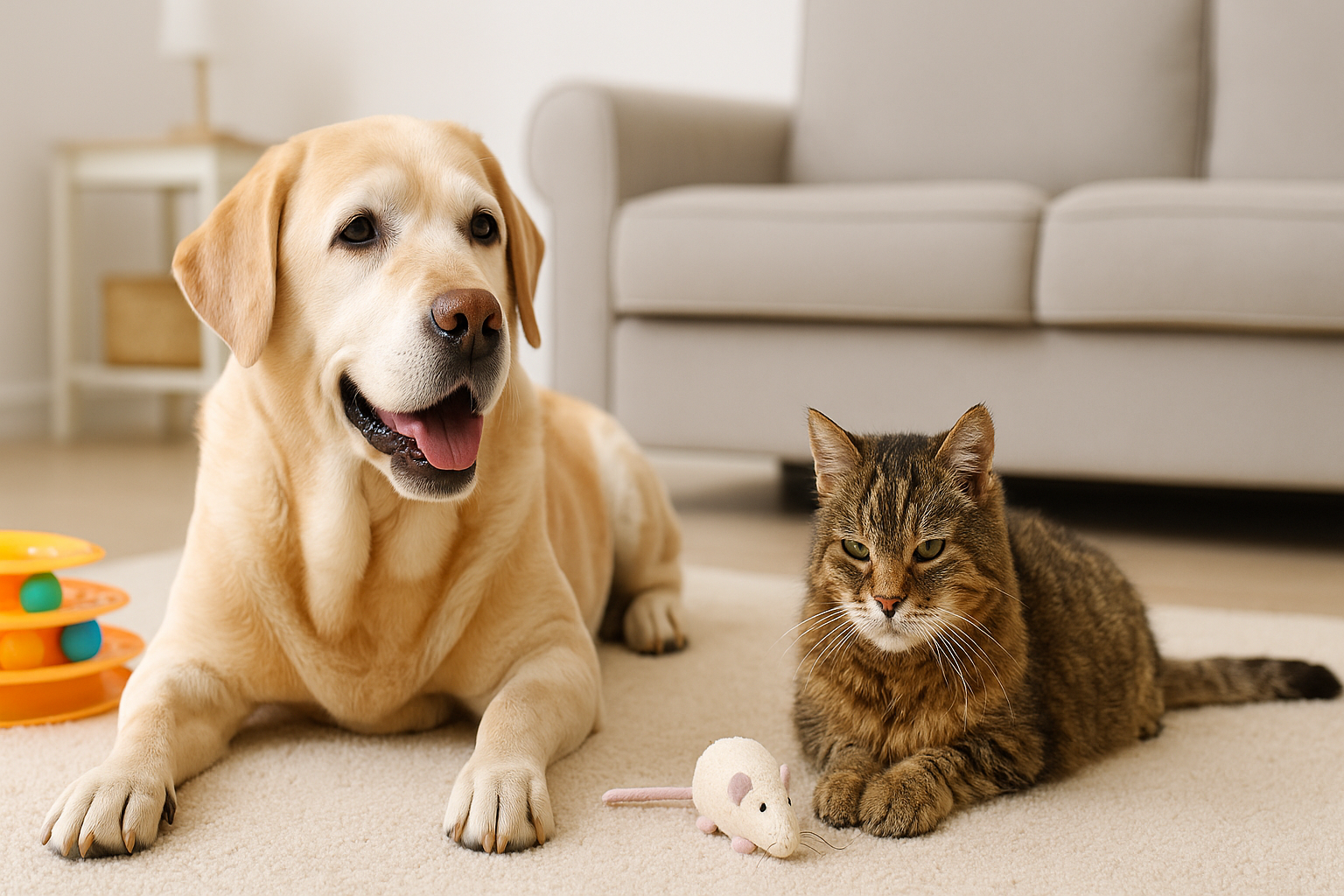Nutrition: Focus on Proteins and Carbohydrates
Focus on high-quality, easily digestible proteins with moderate carbohydrates to help support energy levels. It is crucial to avoid empty calories in older dogs to maintain a healthy weight.
For senior cats, a diet rich in nutrients and amino acids can help stimulate appetite. Introducing new foods gradually is important, as older cats may have sensitivities to certain ingredients. Incorporating ingredients that reduce pain, such as omega-3 fatty acids, can help alleviate joint discomfort and improve mobility.
Mobility: Encouraging Active Lifestyles
Movement is essential for older pets, but their exercise needs differ. Instead of vigorous running, senior dogs enjoy gentle walks where they can sniff and explore. These low-impact activities promote physical health and provide mental stimulation.
Older cats thrive on short, playful moments, such as chasing feather toys or climbing on play structures. Encouraging exploration helps maintain agility and mental sharpness. Integrating fun activities into their daily routines can enhance their overall well-being.
Animal Stimulation
Mental stimulation is vital for older pets, helping to keep their brains active. Use puzzle toys, interactive playthings, and new scents to spark their curiosity and reduce feelings of loneliness. Dogs enjoy scent-based activities, while cats love observing their surroundings from high vantage points.
Establishing simple routines, like brushing and playing calming music, strengthens the bond between you. These practices help pets feel secure and comfortable, improving their daily quality of life.
Supportive Care: Supplements and Veterinary Visits
Veterinary guidance becomes increasingly important as pets age. Some may need special supplements, such as omega-3s for joint health or antioxidants for cellular well-being. Always consult your veterinarian before introducing new supplements to ensure they are appropriate for your pet’s needs.
Be attentive to subtle changes in health, such as dental issues or decreased water intake. Providing attentive care and communicating in ways that your pet understands can enhance their comfort and happiness at home.
Coping with Aging
Behavioral changes in pets are common as they age. If your pet seems anxious or forgetful, establishing a consistent routine can provide stability. Using night lights and ensuring easy access to essential items can help reduce confusion and prevent accidents. Patience and empathy are vital during this transition. Remaining calm allows your pet to feel secure in their environment.
Daily Care Checklist for Senior Pets
- Serve balanced, age-appropriate meals, introducing changes gradually.
- Keep fresh water available in multiple accessible locations.
- Encourage gentle exercises tailored to their capabilities.
- Provide stimulating activities and quiet spaces for relaxation.
- Monitor mood or appetite changes and consult your veterinarian as necessary.
Caring for Senior Pets
Caring for an aging pet is a special way to express love. By providing the right nutrition, engaging playtime, and affection, you can make their final years happier. These years are a treasure of companionship, filled with special moments. Through your thoughtful actions, you create a lasting legacy of love during this cherished time.
